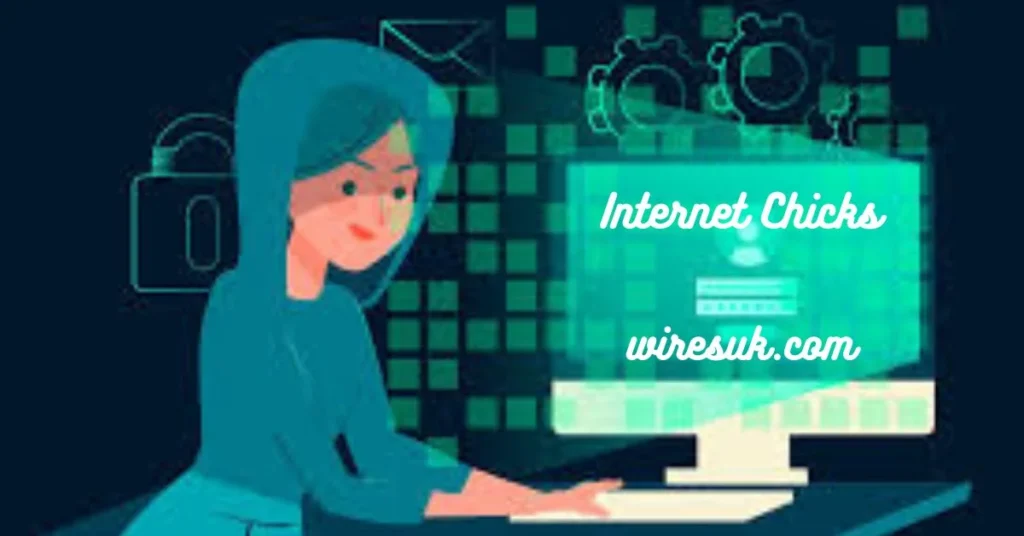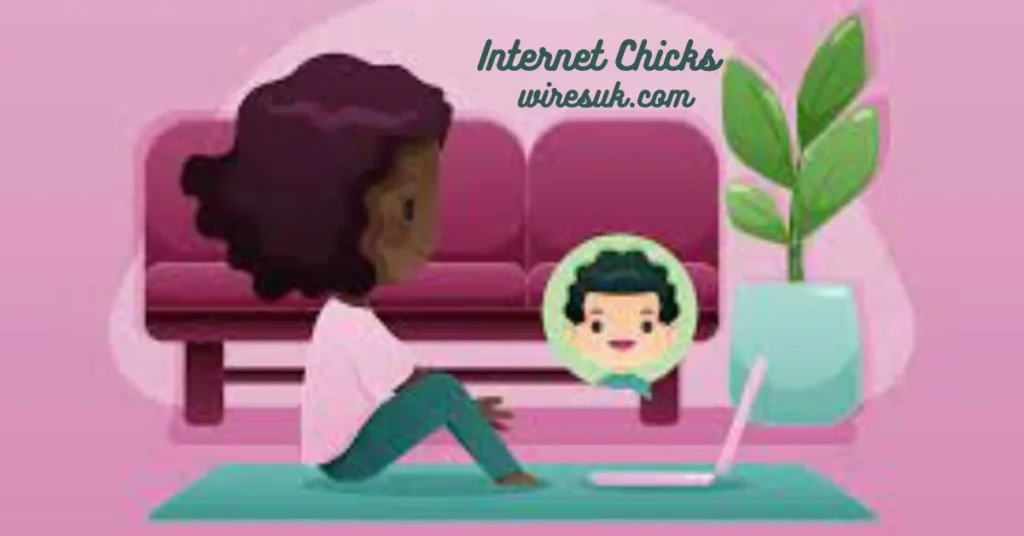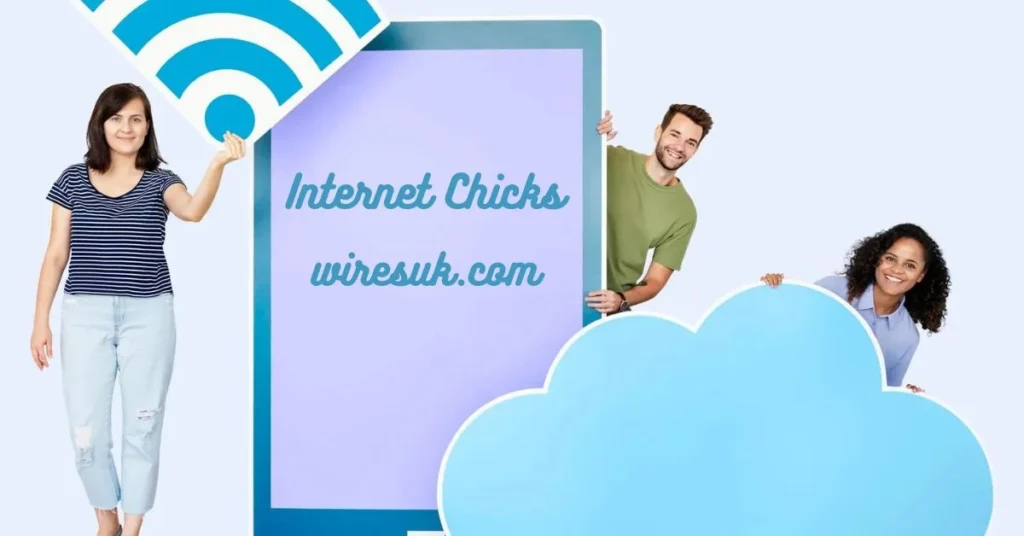Introduction
In today’s rapidly evolving digital landscape, women are emerging as powerful influencers and thought leaders. The term Internet chicks refers to women who have taken the online world by storm, whether through social media, blogging, entrepreneurship, or tech innovation. This term, while colloquial, highlights the growing presence of women across various internet platforms, where they harness their voices, talents, and skills to create impact and drive change. From entrepreneurs to content creators, women are shaping the future of the web in unprecedented ways.
The Rise of Internet Chicks
Historically, the internet was often considered a male-dominated space. However, in recent years, the rise of internet chicks has shifted the balance, with women stepping into the spotlight and asserting their presence online. These women are not only content creators but also trailblazers who have leveraged the power of the web to launch successful careers, businesses, and movements.
Influencers and Content Creators

One of the most visible groups of internet chicks is influencers. Female influencers have become a dominant force on social media platforms like Instagram, YouTube, and TikTok. These women often start by sharing their passions, be it fashion, fitness, beauty, or lifestyle tips. As their following grows, they transform their platforms into lucrative businesses, securing brand partnerships, sponsorships, and monetization opportunities.
For instance, influencers like Huda Kattan, who founded Huda Beauty, built her empire by sharing beauty tips online. Today, her brand is a global success story, with a social media following in the millions. Similarly, women like Zoe Sugg (Zoella) and Emma Chamberlain have transformed their internet fame into full-fledged businesses, selling products, hosting podcasts, and creating content that resonates with millions of followers worldwide.
These internet chicks are redefining the concept of influence. Where traditional media once dictated what it meant to be a role model or influencer, these women have created their own paths, often building communities around their authentic selves and interests. They are proof that women can succeed online by being genuine, innovative, and entrepreneurial.
Female Entrepreneurs
Beyond content creation, many women are taking advantage of the internet to launch their own businesses. The e-commerce boom has empowered female entrepreneurs to set up online stores and market their products directly to consumers. Platforms like Shopify, Etsy, and Instagram have become the go-to tools for women who want to sell everything from handmade crafts to digital products and services.
One notable example is Sophia Amoruso, who founded the fashion brand Nasty Gal as an eBay store. Amoruso’s success story was so groundbreaking that it led to a Netflix series titled Girlboss. While Nasty Gal eventually filed for bankruptcy, Amoruso’s entrepreneurial journey has inspired countless women to embrace the power of the internet to build their own brands.
Similarly, women like Emily Weiss, founder of Glossier, and Payal Kadakia, founder of ClassPass, have built multi-million-dollar companies by leveraging the internet’s ability to connect with global audiences. These female entrepreneurs exemplify the spirit of internet chicks: ambitious, resourceful, and resilient.
Empowerment Through Education and Advocacy
Another key area where internet chicks are making a difference is education and advocacy. Many women use their online platforms to educate others on important social, political, and cultural issues. From body positivity to mental health, female internet users are raising awareness and fostering conversations that challenge societal norms and empower others.
One significant example is the body positivity movement, which gained traction on platforms like Instagram and Tumblr. Women like Tess Holliday, a plus-size model and influencer, have used their online presence to challenge traditional beauty standards and promote body acceptance. Holliday, along with many others, has sparked a broader conversation about representation and inclusivity in the media.
The internet has also allowed women to become powerful advocates for social justice. Activists like Malala Yousafzai and Greta Thunberg have utilized online platforms to amplify their messages and mobilize global movements. Malala, who advocates for girls’ education, and Greta, a climate activist, are both prime examples of young women using the internet to inspire change on a global scale.
Additionally, initiatives like MeToo, founded by Tarana Burke, gained worldwide attention through online platforms, giving women a voice to speak out against sexual harassment and assault. The MeToo movement, which went viral on social media in 2017, demonstrated the internet’s power as a tool for activism and social change.
The Challenges Internet Chicks Face

Despite the opportunities the internet offers, women face unique challenges in the online world. One of the most pervasive issues is online harassment and abuse. According to a report by the Pew Research Center, women, particularly younger women, are more likely than men to experience harassment on social media platforms. This harassment ranges from misogynistic comments to more severe forms of abuse, including doxing and threats of violence.
Female content creators and influencers are often subjected to scrutiny based on their appearance, opinions, and actions. The pressure to conform to certain beauty standards or societal expectations can be overwhelming, leading to burnout, anxiety, and other mental health issues. Moreover, women who engage in advocacy or activism online are often targeted by trolls and hate groups seeking to silence their voices.
Despite these challenges, many internet chicks are finding ways to overcome harassment and continue their work. Online communities and support networks have emerged to help women cope with these issues, offering resources for mental health, safety, and legal assistance. Additionally, social media platforms are increasingly implementing tools to protect users from harassment, though progress remains slow and inconsistent.
Bridging the Gender Gap in Tech
While internet chicks have made significant strides as influencers, entrepreneurs, and advocates, the tech industry remains a space where women are underrepresented. The gender gap in tech is a well-documented issue, with women making up only a fraction of the workforce in fields like software development, data science, and cybersecurity.
Efforts to close this gap are ongoing, with initiatives aimed at encouraging more women to pursue careers in tech. Organizations like Girls Who Code and Women Who Tech provide resources and mentorship for aspiring female technologists. These programs aim to break down the barriers that prevent women from entering the tech industry and to challenge the stereotypes that have long dominated the field.
Moreover, internet chicks who succeed in tech are often pioneers in their fields, inspiring others to follow in their footsteps. Reshma Saujani, the founder of Girls Who Code, has been instrumental in encouraging young girls to explore coding and computer science. Meanwhile, women like Sheryl Sandberg (Facebook) and Susan Wojcicki (YouTube) have held leadership positions in some of the world’s largest tech companies, proving that women can thrive in the tech space.
The Future of Internet Chicks

As the internet continues to evolve, the future looks bright for internet chicks. Women are finding new ways to leverage technology and digital platforms to build careers, share their stories, and drive change. The rise of Web3, artificial intelligence, and other emerging technologies presents even more opportunities for women to innovate and lead in the digital space.
One promising trend is the growing presence of women in the cryptocurrency and blockchain industries. While these fields have historically been male-dominated, female entrepreneurs and developers are starting to make their mark. Women like Cathie Wood, founder of ARK Invest, and Meltem Demirors, chief strategy officer of CoinShares, are among the influential figures in the world of crypto and blockchain. These internet chicks are paving the way for future generations of women to explore opportunities in these cutting-edge industries.
Moreover, as the demand for diverse voices continues to grow, female content creators and entrepreneurs will likely remain at the forefront of internet culture. The success of women like Lilly Singh, who transitioned from YouTube to mainstream media, demonstrates that the internet can serve as a launching pad for careers in traditional media, entertainment, and beyond.
Conclusion
Internet chicks are a powerful force in the digital age. From influencers and entrepreneurs to educators and activists, women are using the internet to shape the future of technology, media, and culture. While challenges such as online harassment and the gender gap in tech remain, the resilience and creativity of internet chicks continue to push boundaries and inspire change.
As we move forward into an increasingly connected world, the contributions of internet chicks will undoubtedly leave a lasting impact on the way we interact, communicate, and innovate online. The digital revolution is far from over, and women will continue to play a crucial role in shaping the future of the internet, one post, video, and tweet at a time.









